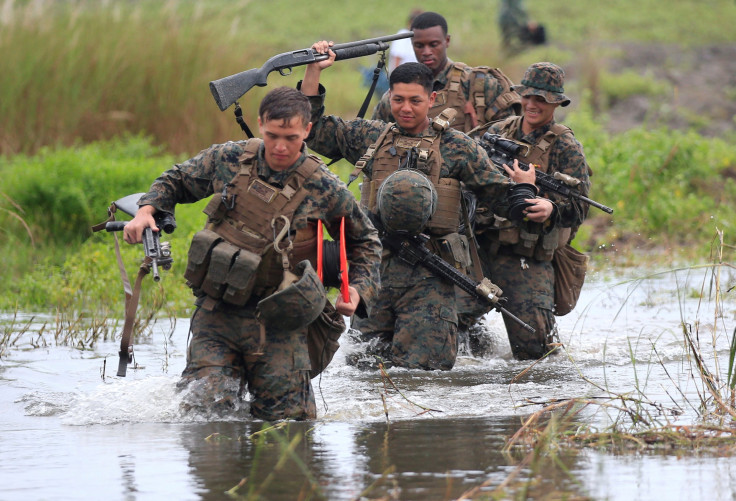Duterte-US Relations 2016: Philippines Military Exercises End After Plans For Joint Training

Amid souring relations between the United States and the Philippines, the two countries announced that they were scrapping a planned joint amphibious landing exercise, according to a report published Monday by Stars and Stripes.
“In 2017, PHIBLEX will not be executed,” Marine Capt. Rachel Nolan, who works at the U.S. Embassy in Manila, said Monday in an email, referring to an acronym for the Philippine Amphibious Landing Exercise.
The last such exercise was conducted in October when 1,400 Marines were in the country to complete training alongside 500 Philippine troops. The decision to scrap the training also comes with a ban on the United States using Philippine territory for staged U.S. patrols, according to Philippine defense officials. The U.S. has been using Guam or Okinawa in Japan for missions in the South China Sea. Americans will now only be able to stop in the Philippines to refuel and resupply during the missions. Other joint training exercises between the two countries will still be conducted.
The relationship between the two countries has been strained lately by Philippine President Rodrigo Duterte’s unconventional ruling style. He has implemented a vicious and violent crackdown on drug users in the country that some are calling genocide. It has concerned investors in the financial world who wonder if the violence undercuts the power of the law.
Duterte has also cultivated a reputation for tough-talk and has openly and profanely told the United States and other countries to stay out of his war on drugs. He threatened to “break up” with the United States in October, when he told President Barack Obama to “go to hell.”
Duterte’s behavior has raised some questions about the strength of the decades-old relationship between the two countries. American officials, despite Duterte’s comments, have said that the relationship is “ironclad” and that there was no need to be concerned about continued cooperation.
© Copyright IBTimes 2025. All rights reserved.






















